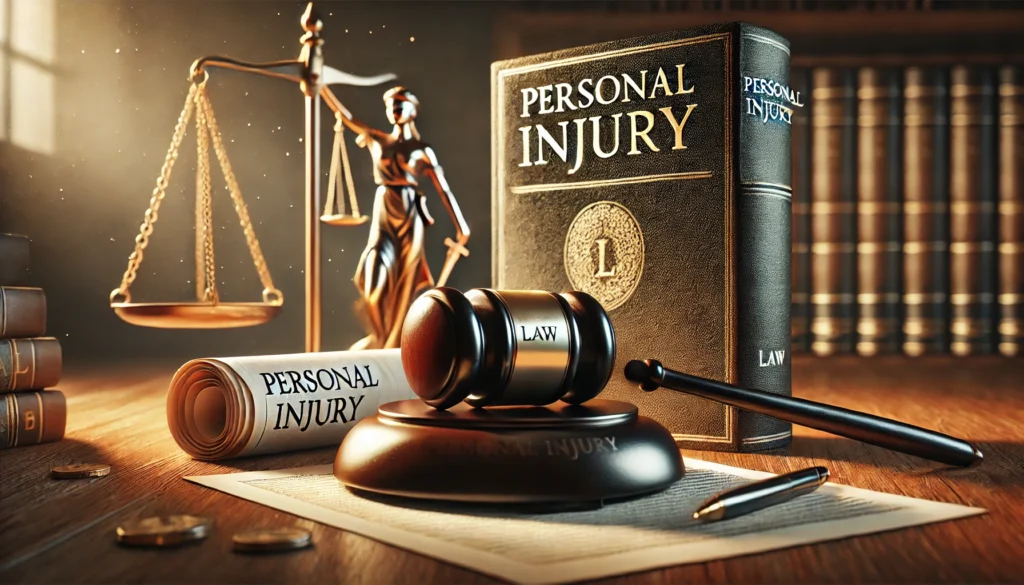
Why AI Can’t Replace Personal Injury Lawyers
Key Points:
- AI has made significant advancements but lacks human emotional intelligence, judgment calls, and subjective decision-making.
- Personal injury lawyers possess unique skills that AI cannot replicate, such as assessing liability, creating case strategies, and empathetic client interactions.
- AI falls short in strategic thinking, client counseling, creative legal problem-solving, and courtroom advocacy.
- AI may assist in specific legal tasks, but it cannot replace the complete range of skills that personal injury lawyers offer.
Hot Take:
While artificial intelligence has made impressive strides in various industries, it is important to recognize that AI cannot replace personal injury lawyers. The unique human skills that attorneys possess, such as emotional intelligence, judgment calls, and subjective decision-making, are crucial in handling personal injury cases. Connecting with an experienced legal professional is essential for those who have suffered a severe injury due to an accident. AI may serve as a useful tool in certain legal tasks, but it cannot substitute the invaluable skills and expertise that personal injury lawyers provide in fighting for their clients’ rights and obtaining maximum compensation. Law firms should continue to focus on providing personalized, empathetic, and strategic legal counsel to their clients, as these are the qualities that truly set them apart from AI technologies.
Why AI Falls Short in Replacing Personal Injury Lawyers
Although AI has been successful in streamlining certain aspects of the legal process, such as document review and analysis, it cannot replace the nuanced skills required for personal injury law. For example, personal injury lawyers need to assess liability in motorcycle accidents, create effective case strategies for low-impact car accident injuries, and win long-term disability cases. AI is unable to provide the human touch and judgment required for these complex legal situations.
Strategic Thinking and Client Counseling
AI lacks the ability to think strategically and provide personalized counsel to clients. Personal injury lawyers have the unique ability to create customized strategies for clients, such as negotiating settlements for bulging disc injuries or working with top car accident lawyers in Southern Florida to maximize compensation. AI may be able to provide data analysis and pattern recognition, but it cannot replace the human touch and emotional intelligence required to connect with clients and advocate for their best interests.
Creative Legal Problem-Solving and Courtroom Advocacy
AI also falls short in creative legal problem-solving and courtroom advocacy. Personal injury lawyers must be able to think outside the box and adapt their strategies to the unique circumstances of each case. This might involve analyzing average Oregon car accident jury verdicts or working with a Kansas City nursing home abuse lawyer to expose negligence. AI can’t replicate the passion, charisma, and persuasive abilities of a skilled personal injury attorney in the courtroom.
Embracing AI as a Tool, Not a Replacement
Instead of viewing AI as a threat, personal injury lawyers should embrace it as a tool to improve their practice. AI can assist with tasks such as document review, legal research, and data analysis, freeing up more time for attorneys to focus on their clients and their cases. By leveraging AI technology, personal injury lawyers can continue to provide top-notch legal representation in cases involving Indianapolis car accidents, “talk and die” syndrome, and Kansas City motorcycle accidents.
Final Thoughts
While AI has the potential to revolutionize many aspects of the legal profession, it cannot replace the unique skills and expertise of personal injury lawyers. From assessing liability to crafting case strategies, personal injury attorneys provide invaluable services that AI simply cannot replicate. By embracing AI as a helpful tool rather than a threat, personal injury lawyers can continue to focus on providing empathetic, strategic, and personalized legal counsel to their clients.
